NORTRIPTYLINE - ORAL
PHONETIC PRONUNCIATION: (nor-TRIP-ti-leen)
COMMON BRAND NAME(S): Aventyl, Pamelor
GENERIC NAME(S): nortriptyline HCl
Uses
USES: This medication is used to treat mental/mood problems such as depression. It may help improve mood and feelings of well-being, relieve anxiety and tension, and increase your energy level. This medication belongs to a class of medications called tricyclic antidepressants. It works by affecting the balance of certain natural chemicals (neurotransmitters) in the brain.
How to use NORTRIPTYLINE - ORAL
HOW TO USE: Read the Medication Guide provided by your pharmacist before you start taking nortriptyline and each time you get a refill. If you have any questions, consult your doctor or pharmacist. Take this medication by mouth, usually 1 to 4 times daily or as directed by your doctor. If you are using the liquid form, measure the dose carefully using a special measuring device/spoon. Do not use a household spoon because you may not get the correct dose. The dosage is based on your medical condition and response to treatment. To reduce your risk of side effects (such as dry mouth, dizziness), your doctor may direct you to start this medication at a low dose and gradually increase your dose. Follow your doctor's instructions carefully. Take this medication regularly in order to get the most benefit from it. To help you remember, take it at the same time(s) each day. Do not increase your dose or use this drug more often or for longer than prescribed. Your condition will not improve any faster, and your risk of side effects will increase. It is important to continue taking this medication even if you feel well. Do not stop taking this medication without consulting your doctor. Some conditions may become worse when this drug is suddenly stopped. Also, you may experience symptoms such as mood swings, headache, tiredness, and sleep change. To prevent these symptoms while you are stopping treatment with this drug, your doctor may reduce your dose gradually. Consult your doctor or pharmacist for more details. Report any new or worsening symptoms right away. This medication may not work right away. You may see some benefit within a week. However, it may take up to 4 weeks before you feel the full effect. Tell your doctor if your condition persists or worsens (such as your feelings of sadness get worse, or you have thoughts of suicide).
Side Effects
Precautions
Interactions
Overdose
Images
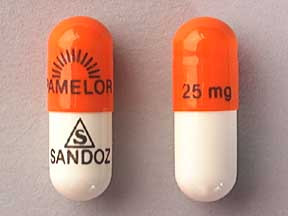
- color
- orange
- shape
- oblong
- imprint
- logo and PAMELOR and 25 mg, logo and SANDOZ
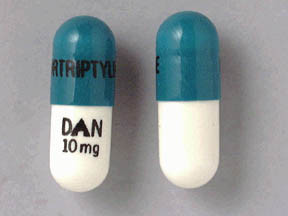
- color
- white
- shape
- oblong
- imprint
- NORTRIPTYLINE, DAN 10mg

- color
- white
- shape
- oblong
- imprint
- NORTRIPTYLINE, DAN 10mg
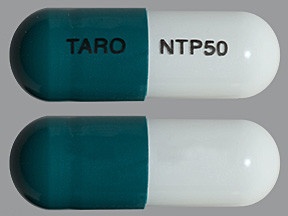
- color
- white
- shape
- oblong
- imprint
- TARO, NTP 50

- color
- white
- shape
- oblong
- imprint
- TARO, NTP 50
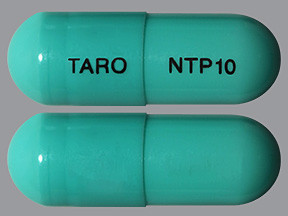
- color
- light green
- shape
- oblong
- imprint
- TARO, NTP 10

- color
- light green
- shape
- oblong
- imprint
- TARO, NTP 10
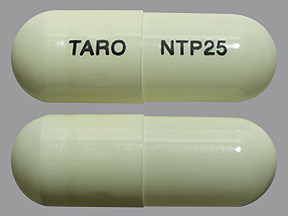
- color
- ivory
- shape
- oblong
- imprint
- TARO, NTP25

- color
- ivory
- shape
- oblong
- imprint
- TARO, NTP25
Reviews
Faq for NORTRIPTYLINE - ORAL
Nortriptyline is primarily used to treat certain types of depression. It can also be prescribed for the prevention of migraine headaches and to manage neuropathic pain.
Nortriptyline is a tricyclic antidepressant that works by restoring the balance of certain natural substances (neurotransmitters) in the brain. It enhances the effects of neurotransmitters like serotonin and norepinephrine, which are involved in mood regulation.
Nortriptyline is not considered addictive. However, abrupt discontinuation of the medication can lead to withdrawal symptoms. It is always recommended to gradually reduce the dosage under the supervision of a healthcare professional.
Common side effects of Nortriptyline may include drowsiness, dry mouth, constipation, blurred vision, dizziness, and weight gain. These side effects are usually transient and may diminish over time.
The effects of Nortriptyline may not be immediately noticeable. It usually takes several weeks for the full benefits of the medication to be experienced. It is important to continue taking the medication as prescribed by the doctor, even if there is no immediate improvement.
Nortriptyline is generally not recommended during pregnancy. It may pose a risk to the developing fetus. Pregnant women should consult their healthcare provider before using Nortriptyline.
It is not recommended to consume alcohol while taking Nortriptyline. Alcohol may increase the drowsiness and dizziness caused by the medication. It can also worsen the sedative effects of Nortriptyline.
Nortriptyline may interact with certain medications, including monoamine oxidase inhibitors (MAOIs), blood thinners, antihistamines, and benzodiazepines. It is crucial to inform your healthcare provider about all the medications you are taking to avoid any potential drug interactions.
Nortriptyline should be taken exactly as prescribed by the doctor. It is usually taken orally once or multiple times daily, with or without food. It is important to follow the instructions on the prescription label and not to exceed the recommended dosage.
Warning
WARNING: Antidepressant medications are used to treat a variety of conditions, including depression and other mental/mood disorders. These medications can help prevent suicidal thoughts/attempts and provide other important benefits. However, studies have shown that a small number of people (especially people younger than 25) who take antidepressants for any condition may experience worsening depression, other mental/mood symptoms, or suicidal thoughts/attempts. Therefore, it is very important to talk with the doctor about the risks and benefits of antidepressant medication (especially for people younger than 25), even if treatment is not for a mental/mood condition. Tell the doctor right away if you notice worsening depression/other psychiatric conditions, unusual behavior changes (including possible suicidal thoughts/attempts), or other mental/mood changes (including new/worsening anxiety, panic attacks, trouble sleeping, irritability, hostile/angry feelings, impulsive actions, severe restlessness, very rapid speech). Be especially watchful for these symptoms when a new antidepressant is started or when the dose is changed.
Disclaimer
IMPORTANT: HOW TO USE THIS INFORMATION: This is a summary and does NOT have all possible information about this product. This information does not assure that this product is safe, effective, or appropriate for you. This information is not individual medical advice and does not substitute for the advice of your health care professional. Always ask your health care professional for complete information about this product and your specific health needs.
No Reviews Yet